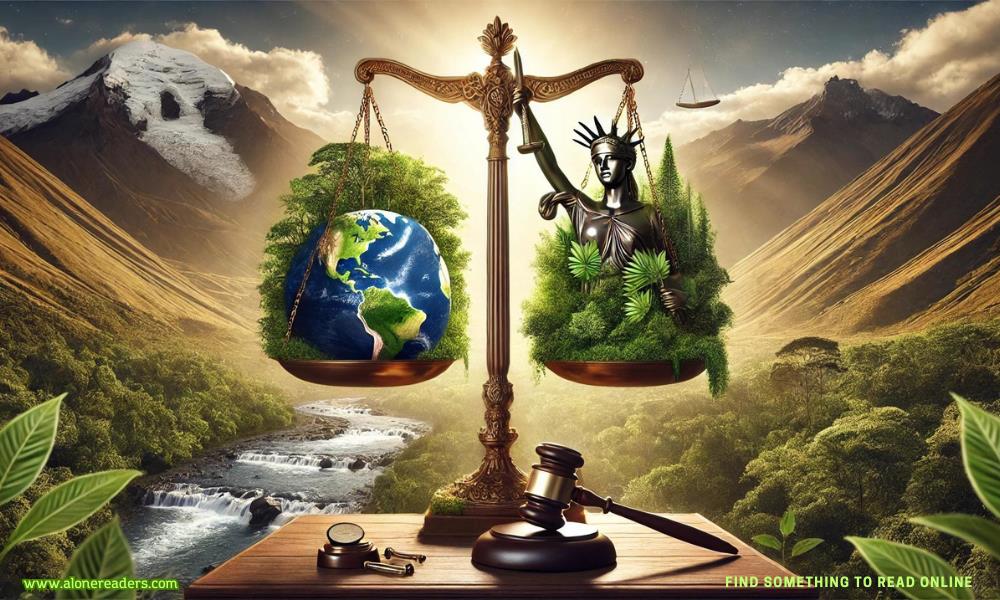
In a landmark decision, Ecuador's Constitutional Court has once again demonstrated the country's pioneering role in environmental protection by upholding and applying the constitutional rights of nature. This ruling not only sets a significant legal precedent within Ecuador but also holds the potential to inspire similar legal actions around the globe. The court's decision is a powerful affirmation of Ecuador's 2008 Constitution, which was the first in the world to recognize nature as a legal entity with rights, a concept that is still groundbreaking even over a decade later.
Ecuador's 2008 Constitution marked a historic moment for environmental law, as it was the first to grant rights to nature, or "Pachamama" as referred to in the document, recognizing its right to exist, persist, maintain, and regenerate its vital cycles. This revolutionary approach to environmental protection reflects the deep cultural and spiritual connection many Ecuadorians, particularly Indigenous communities, have with the natural world.
The concept of granting legal rights to nature stems from Indigenous worldviews that see nature not as a resource to be exploited but as a living entity with intrinsic value. This legal framework was established to counterbalance the impacts of unchecked industrial activities, particularly in sensitive and biodiverse areas such as the Amazon rainforest.
The recent court case that brought the rights of nature back into the spotlight involved the controversial Los Cedros Biological Reserve. This reserve, located in the cloud forests of northwestern Ecuador, is a biodiversity hotspot and home to numerous endangered species. The reserve was under threat from mining activities that had been authorized by the government despite clear constitutional protections.
Local communities and environmental groups brought the case to the Constitutional Court, arguing that the government’s authorization of mining activities in the Los Cedros Reserve violated the rights of nature as enshrined in the Constitution. They contended that such activities would lead to irreversible damage to the ecosystem, thereby infringing on nature's right to maintain and regenerate its vital cycles.
In a groundbreaking decision, the Constitutional Court ruled in favor of the plaintiffs, recognizing that the government's authorization of mining activities indeed violated the rights of nature. The court ordered the immediate cessation of all mining operations within the Los Cedros Biological Reserve and mandated that the government take steps to restore the affected areas.
The court's ruling emphasized that economic interests cannot override the constitutional rights of nature. This decision is seen as a major victory for environmental advocates and a significant step forward in the global movement to recognize and protect the rights of nature.
This ruling has far-reaching implications for Ecuador and potentially for environmental law worldwide. For Ecuador, the decision reinforces the legal framework that protects its diverse ecosystems from exploitation and degradation. It sends a strong message to industries that environmental protection cannot be compromised for economic gain.
Moreover, the decision is likely to embolden environmental advocates and Indigenous communities in Ecuador and beyond, providing a legal precedent that can be used to challenge other environmentally harmful activities. It also highlights the critical role that courts can play in enforcing constitutional protections for nature, even in the face of powerful economic interests.
Ecuador's court ruling on the rights of nature is more than just a national victory; it is a potential model for other countries grappling with environmental degradation and the impacts of climate change. The idea of granting legal rights to nature is gaining traction worldwide, with similar legal movements emerging in countries such as New Zealand, where the Whanganui River was granted legal personhood, and in various U.S. municipalities that have adopted rights of nature ordinances.
This growing global recognition of the rights of nature represents a shift in legal thinking, one that challenges the traditional human-centered approach to law and governance. By recognizing nature as a legal entity with rights, these legal frameworks aim to create a more balanced relationship between humans and the natural world, one that acknowledges our responsibility to protect and preserve the environment for future generations.
Despite the significance of this ruling, challenges remain. Implementing and enforcing the rights of nature requires a fundamental shift in how governments and societies approach environmental protection. It necessitates the development of new legal tools, the strengthening of environmental institutions, and the fostering of a societal culture that values and respects nature.
In Ecuador, the enforcement of the Constitutional Court's ruling will be closely watched. Ensuring that the government complies with the court's orders and takes meaningful action to restore the Los Cedros Reserve will be crucial in maintaining the integrity of the rights of nature.
Furthermore, the decision raises important questions about the balance between development and environmental protection, particularly in countries like Ecuador that rely heavily on resource extraction for economic growth. Finding ways to harmonize economic development with the rights of nature will be an ongoing challenge, requiring innovative solutions and the active participation of all stakeholders.
Ecuador's historic court ruling on the rights of nature is a significant milestone in the global movement to protect the environment. It reaffirms the country's commitment to its groundbreaking constitutional provisions and sets a powerful example for the rest of the world. As climate change and environmental degradation continue to threaten ecosystems and communities worldwide, the recognition and enforcement of the rights of nature may prove to be a crucial tool in the fight for a sustainable and just future.
This decision is not just a victory for Ecuador; it is a victory for the planet, offering hope and inspiration to all who work to protect our shared environment.